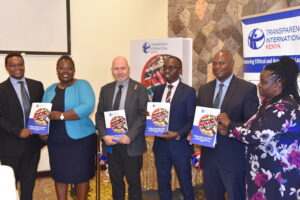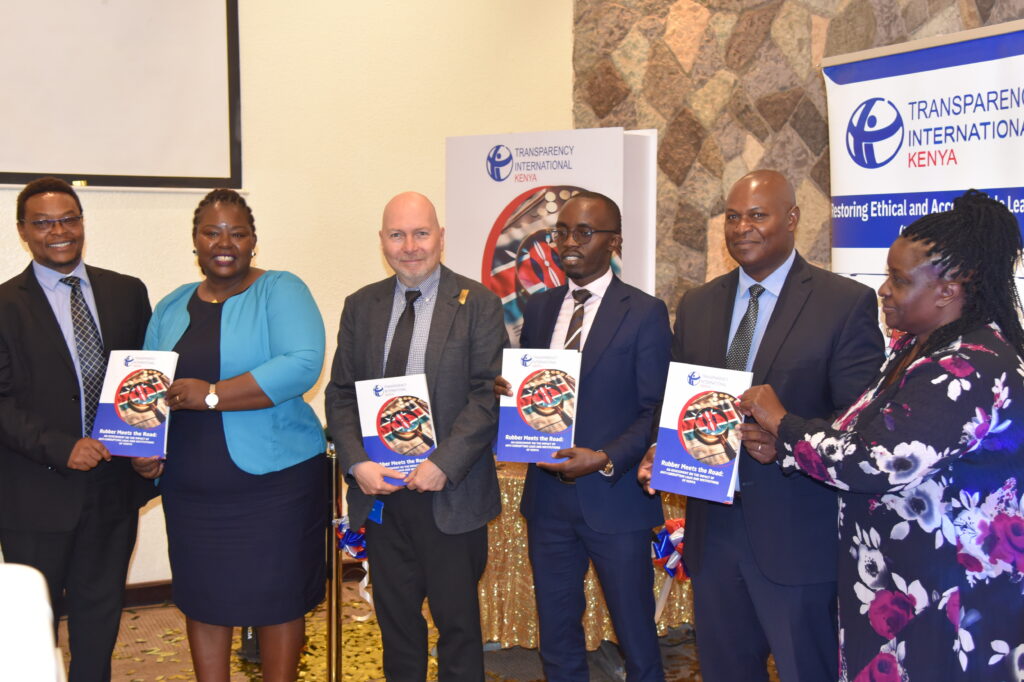By Alloys Musyoka
The Transparency International Kenya (TI-Kenya), in collaboration with URAIA Trust and with financial support from the Royal Danish Embassy, has launched the ground-breaking report titled
“Rubber Meets the Road: An Assessment on the Impact of Anti-Corruption Laws and Institutions in Kenya.”
The report presents a comprehensive evaluation of Kenya’s anti-corruption framework, highlighting critical gaps in legislation, institutional capacity, and enforcement mechanisms.
Although Kenya has a robust legal framework-including the Ethics and Anti-Corruption Act, the Anti-Bribery Act, and the Leadership and Integrity Act-the report finds that corruption remains deep-rooted.
Among the challenges identified that require urgent focus in Kenya includes weak enforcement of anti-corruption laws, inadequate resources for oversight institutions, overlapping mandates among agencies, and low public trust in the country’s anti-corruption efforts. According to the report Kenya’s anti-corruption laws contain loopholes and inconsistencies that hinder effective enforcement.
It points out that key institutions such as the Ethics and Anti-Corruption Commission (EACC) and the Office of the Director of Public Prosecutions (ODPP) face resource and coordination challenges making it impossible for them to execute their mandates.
Further, the report indicates that there is limited public participation in governance and civic education against corruption giving freedom for corruption practices.
“The role of non-state actors, including civil society and faith-based organizations, is significant but constrained by systemic barriers,” reads part of the report.
Among the recommendations to fill the gaps identified in the fight against corruption in Kenya contained in the report include amending outdated laws to address emerging corruption trends such as digital fraud and illicit financial flows.
In order to strengthen anti-corruption efforts in the country, the report also recommended enhancing funding and coordination among anti-corruption agencies to improve efficiency through institutional strengthening.
Also ethical leadership development through integrating integrity education into the national curriculum and strengthening ethics training for public servants.
“Through public engagement there is a need to promote open governance initiatives to foster greater civic participation and transparency. Strengthening partnerships by supporting non-state actors in advocacy and public awareness campaigns against corruption,” reads part of recommendations.
Speaking at the launch, Sheila Masinde, Executive Director- Transparency International Kenya (TI-Kenya), emphasized the urgent need for reforms.
“This report is a wake-up call. Kenya must take decisive action to close legal loopholes, strengthen institutions, and empower citizens to demand accountability. Corruption is not just a legal issue; it’s a governance crisis that erodes morals, ethics, and the future of every Kenyan,” She said.
TI-Kenya urges the government, civil society, and the private sector to adopt the report’s recommendations and work collaboratively toward a corruption-free society.


